workshop_0.png

Phone: 832-471-4180
Fax: 281-238-0218
Address: 5855 Sienna Springs Way, Room#152, Missouri City, TX 77459
Domestic Violence Conference
Program Guide
Presentation
Fact Sheets
Resources
Frequently Asked Questions
Addressing the mental health needs of children, youth and families is fundamental to the future of Fort Bend County. COVID-19 has had a significant impact on our communities and we must not overlook the psychological impact on our children’s mental health.
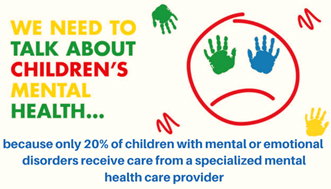
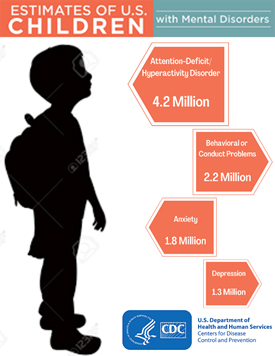
ADHD, behavior problems, anxiety, and depression are the most commonly diagnosed mental disorders in children.
Anxiety in children may present as fear or worry, but can also make them irritable and angry. Anxiety symptoms can also include trouble sleeping, as well as physical symptoms like fatigue, headaches, or stomachaches.
Depression in children may present as sadness, hopelessness or anger and irritability. Depression symptoms can include not wanting to do fun things, changes in eating, sleeping patterns, or energy, trouble with concentration, feeling worthless, useless, or guilty, showing self-injury and self-destructive behavior.
It is important to recognize the symptoms of anxiety and depression in children, so they can seek treatment with a health care provider.
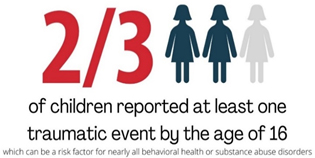
Traumatic events can include a death, divorce, a pandemic, natural disasters, exposure to violence, or bullying.
Understanding a child’s trauma and making an effort to help them heal from it can significantly reduce the effects of possible behavioral disorders that could result from the trauma.
Traumatic stress can also lead to increased use of health and mental health services and increased involvement with the child welfare and juvenile justice systems.
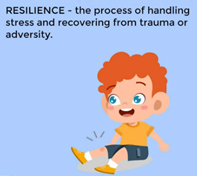
Resilience is important to development during childhood because it allows children to deal with hardships in life without it being overwhelming for them.
Providing children healthy parent-child relationships, safe and stable homes, healthy foods, education, and support systems is key to their emotional and overall wellbeing.
Playing supports and enhances the development of resilience
To help foster resilience, parents can play, show warmth, listen, reassure, and be consistent with their children.

Trying to keep up with regular routines.
Reassuring them that they are safe and letting them know that it is okay to feel upset.
Addressing fears and concerns in a developmentally appropriate manner.
Sharing with them how you deal with stress.
Spending time with your child in meaningful activities, reading together, exercising, and playing games.
Limiting exposure to social media.
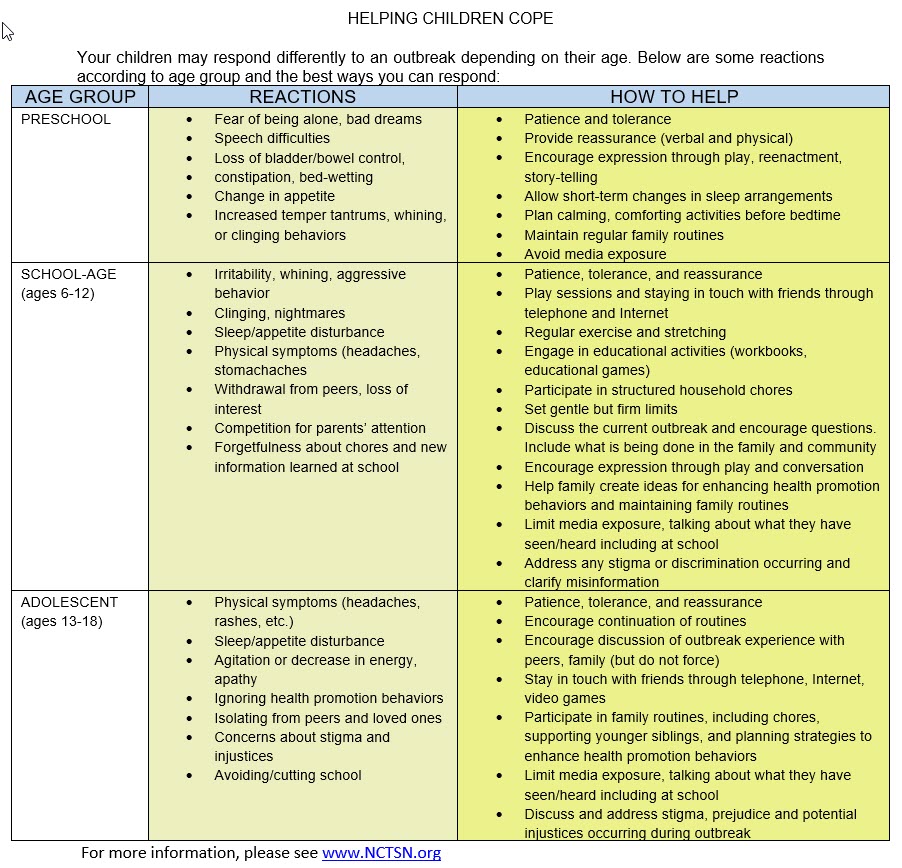
Presentations

Come join our workshop focused on providing adolescents with skills to help create awareness and regulate their emotions. Topics covered include:
Emotional Resilience: Learn to identify emotions when you start to feel distressed.
Creating Emotional Awareness: Learn to identify distressing emotional triggers, the concept of tolerance, develop skills to accept and cope with distressing situations.
Effective Communication: Learn to communicate more effectively through understanding your values around relationships, your boundaries and communication styles.
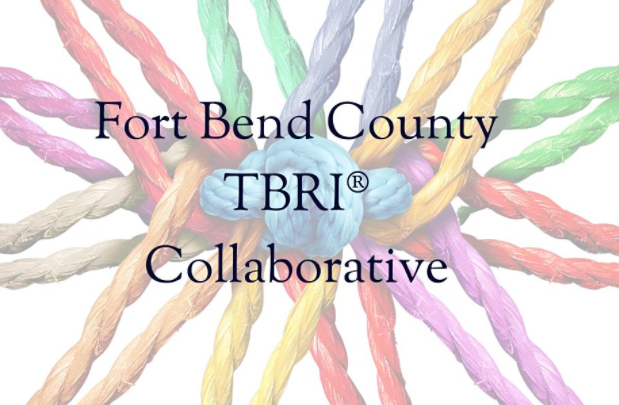
This 24 hour training is specifically designed for those working with children who come from “hard places,” such as maltreatment, abuse, neglect, multiple home placements, and violence, but can be used with all children. TBRI consists of three sets of harmonious principles: Connecting, Empowering, and Correcting Principles. They are designed for use with children and youth of all ages and risk levels.
*Lunch is provided*
The Intro and Overview of TRBI sessions is a pre-requisite to attend any other training principle.
Training dates: 2nd and 4th Tuesdays (10am to 4pm)
Registration — Fort Bend TBRI Collaborative

BHS works closely with the Crisis Intervention Team (CIT), which is a specialized unit formed within the Fort Bend County Sheriff’s Office (FBCSO). The objective of the specialized trained team of officers is to assist mental health consumers in crisis, ensure safety, and connect individuals with needed mental health services. BHS has worked closely with the FBCSO to develop protocols, provide training, and track outcomes for CIT to ensure it can divert people away from incarceration or emergency rooms when possible. CIT also provides follow up checks when necessary to prevent further crisis and to assist in recovery.
*In case of an emergency, call 911; ask for a CIT Officer
*For non-emergencies, call 281-341-4665
Lieutenant Jerome Ellis
Office: 281-341-8530
Email: Jerome.Ellis@fortbendcountytx.gov
Sergeant Alexander Rey
Office: 281-341-8533
Email: Alexander.Rey@fortbendcountytx.gov
For more information please visit FBC CIT Team Website:
https://www.fortbendcountytx.gov//government/departments/sheriff-s-office/chief-deputy/crisis-intervention-team-cit
Infant Toddler Initiative

Infant Toddler Court (ITC): Healing the Youngest Victims is a service enhancement to the existing Infant Toddler Court and to the Cluster Court. It focuses on implementing a continuum of relationship-based services to facilitate reunification, attachment, emotional and behavioral regulation, parenting capacity, permanency, and overall healing of young victims of abuse and neglect. The Infant Toddler Court (ITC): Healing the Youngest Victims enhances relationship-based and family-centered services for infants, toddlers, and children. Our goal is to work collaboratively with the Court, CASA, DFPS, and attorneys to improve the well-being of children and support family reunification. VOCA (Victims of Crime Act) provides support to the ITC: Healing to Youngest Victims.
The Infant Toddler Court Initiative provides:
The 328th District Court in Fort Bend County was one of the five Courts nationwide that began the initiatives for infants and toddlers over 13 years ago.
We work collaboratively to:
Scan QR Code or Fill Out Referral Form: https://form.fortbendcountytx.gov/Behavioral_Health_Services_Referral.html
For questions or assistance, please call: 281-238-3079
Questions and Inquiries: BHSdept@fbcx.gov
Recovery & Reintegration Program
A Clinical Forensic Service for Adults
The Recovery & Reintegration program offers clinical forensic services for adult clients, who have complex behavioral health needs, such as mental illness, substance abuse disorders, and complex trauma, and who are at risk of criminal justice involvement. This program is individualized by addressing needs, identifying strengths, helping build resilience, improving wellness, and supporting recovery. The program aims to prevent ongoing incarceration, as an individual’s health easily deteriorates by being further involved in the criminal justice system.
It is estimated that 15% of men and 31% of women being booked in jails have a mental illness, with most having co-occurring substance abuse. This program is critical to ensure that these individuals who are at high risk of recidivism receive specialized therapy, intensive case management, and access to community based support.
The program’s goal is to increase access to primary and specialty care services, specifically for underserved populations, to ensure all clients receive the most appropriate care, regardless of their location or ability to pay. The program reduces recidivism rates and promotes recovery in the community by providing the services below:
R & R services are free to participants
Scan QR Code or Fill Out Referral Form: https://form.fortbendcountytx.gov/Behavioral_Health_Services_Referral.html
For questions or assistance, please call: 281-238-3079
Questions and Inquiries: BHSdept@fbcx.gov
The Fort Bend Criminal Justice Mental Health (FB CJMH) is a task force that works together to improve services and systems for people with mental illness involved or at risk of involvement in the criminal justice system. This task force is coordinated by the Fort Bend County Behavioral Health Services Department in collaboration with other county departments and community agencies.
The following departments and community organizations participate in this initiative: